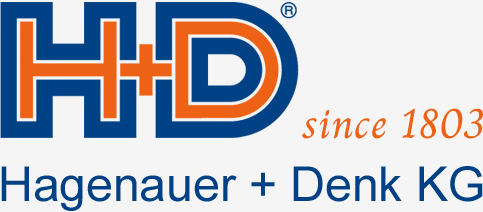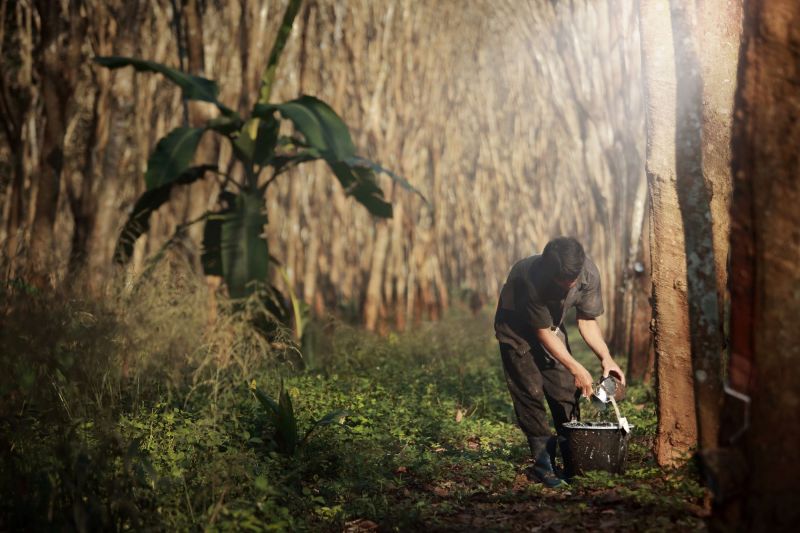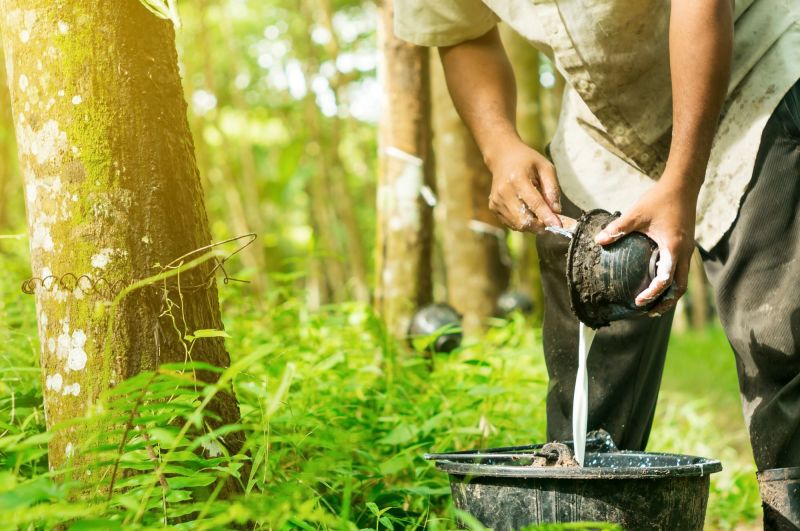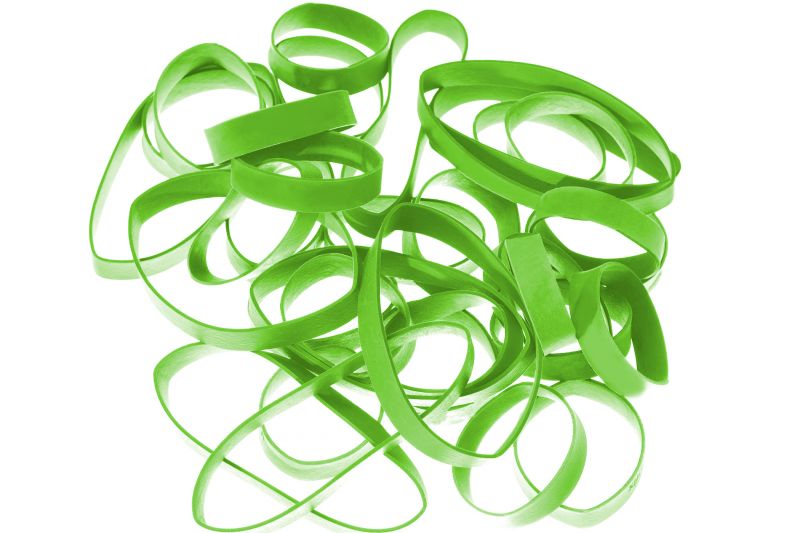Reading time of the interview ~ 6 minutes
Are rubber bands environmentally friendly?
Interview with our expert Sebastian Gropper
Rubber bands accompany us in many areas of life, whether at work, at home or in our hobbies. In light of the current environmental debate, many users want to know whether the rubber bands they use are really environmentally friendly. Below you will find a brief explanation on this topic.
What are rubber bands made of?
Sebastian Gropper: "Rubber bands are made from natural rubber, which is obtained from the latex sap of the rubber tree. For centuries, latex sap has been obtained by scratching the bark of the rubber tree by hand. Even the indigenous population of South America used the advantages of rubber to make waterproof, tear-resistant or flexible objects. Natural rubber is therefore a renewable raw material that also binds CO2 through the growth of the tree. Furthermore, natural rubber is both compostable and recyclable, which means that the end of its life cycle can also be designed to be environmentally friendly."
What does the EU Deforestation Regulation (EUDR) say?
Sebastian Gropper: "In the main rubber-growing countries, Vietnam, Malaysia, Myanmar and Thailand, areas have been cleared in the past to establish plantations for rubber trees. This approach was a negative intervention in nature.
However, the environmental awareness of many buyer countries has effectively stopped the creation of new plantations. In particular, the EU Deforestation Regulation (EUDR), which comes into force around 2026, means that rubber products may only be placed on the EU market if:
- they have been produced without deforestation,
- they have been produced in accordance with the legislation of the country of manufacture and
- there is a declaration of compliance with due diligence on the part of the country of manufacture."
What is the environmental impact of vulcanization, extrusion and cutting?
Sebastian Gropper: "Vulcanization is a process in which rubber is converted from a plastic state to an elastic state by adding sulphur. Extrusion is a process in which a heated latex mixture is pressed through a jet and then cooled. The rubber tubings are cut into bands using cutting systems which cut the tube to length with rotating knives. Additional elements such as rubber oil and colorants must also be added for finishing.
All of these processing steps consume energy and have a negative impact on the environmental balance."
What is CO2 reduction called at H+D?
Sebastian Gropper: "Since 2023, H+D has converted its production to 100% renewable energy and also provides solar energy to other parties. State-of-the-art cutting systems with energy-efficient drives have reduced the ecological footprint by 40%. We guarantee strict compliance with ESG requirements and the EU Supply Chain Act. By manufacturing in Germany, we also keep transportation routes as short as possible.
We have also involved our suppliers and logistics providers in our objective to reduce Scope 3 emissions to zero by 2035."
Scope 1, 2 and 3 emissions from our rubber ring production
Special from our expert Dr. Gerd Strasser
The basis for a climate protection assessment of our company's rubber band production is the evaluation of all CO2 emissions with a comprehensive analysis of all emission sources.
Scope 1 Emissions: Emissions from sources that we are directly responsible for and control
By switching production, temperature control in all buildings and all other energy consumers, such as IT, the canteen and outdoor lighting, to electricity from renewable sources, we have been able to reduce Scope 1 emissions to 0% since 2023. This was made possible by a 300 kWp solar system and an energy efficiency building that meets the German GEG 40EE standards.
Scope 2 Emissions: indirect emissions from purchased energy sources
If we have to rely on external electricity suppliers during the darker months of the year, we only use electricity from alternative energy sources. Furthermore, a certain proportion of our fleet already consists of vehicles with electric and hybrid drives. Only our technicians' vehicles still have combustion engines. Our aim is to convert these vehicles to purely electric drives by 2030. However, thanks to better route management and more economical engines, fuel consumption has been reduced by 35% since 2020.
Scope 3 Emissions: Activities within our value chain
We will strictly comply with the requirements of the EU Supply Chain Act. The EU deforestation regulation plays a greater role here. All our rubber suppliers are obliged to comply with this regulation and their compliance is regularly monitored. Of course, CO2-relevant emissions occur along the value chain from the harvesting of the rubber sap to the disposal of rubber rings. Measuring these and assessing them with regard to possible avoidance is a task that we will be tackling in the coming years. Since our data collection in 2020, we have already been able to identify a 15% reduction in emissions-relevant CO2 in the external value chain for our rubber band production.
Conclusion:
“Rubber rings are made from latex, which is obtained from renewable raw materials. Further processing at H+D is already practically CO2-neutral (Scope 1 and 2 emissions). The addition of additives, such as sulphur or rubber oil, is still necessary, and the production process also requires energy, although this comes largely from renewable sources. In an overall assessment, rubber rings from H+D are classified as environmentally friendly.”
H+D quality guarantee for rubber rings made from natural rubber
- Manufactured in accordance with DIN 7715
- Food-safe according to U.S. Food and Drug Administration (FDA) Code of Federal Regulations (CFR) 21, Section 177.2600 and EU Regulation 1935/2004 (only applies on request and after explicit confirmation)
- Lead-free and phthalate-free according to legal requirements
- Reach compliant according to 1907/2006/EC
- RoHS compliant according to 2011/65/EU
Need more information on natural rubber bands?
Find further interesting details on our rubber band program.













